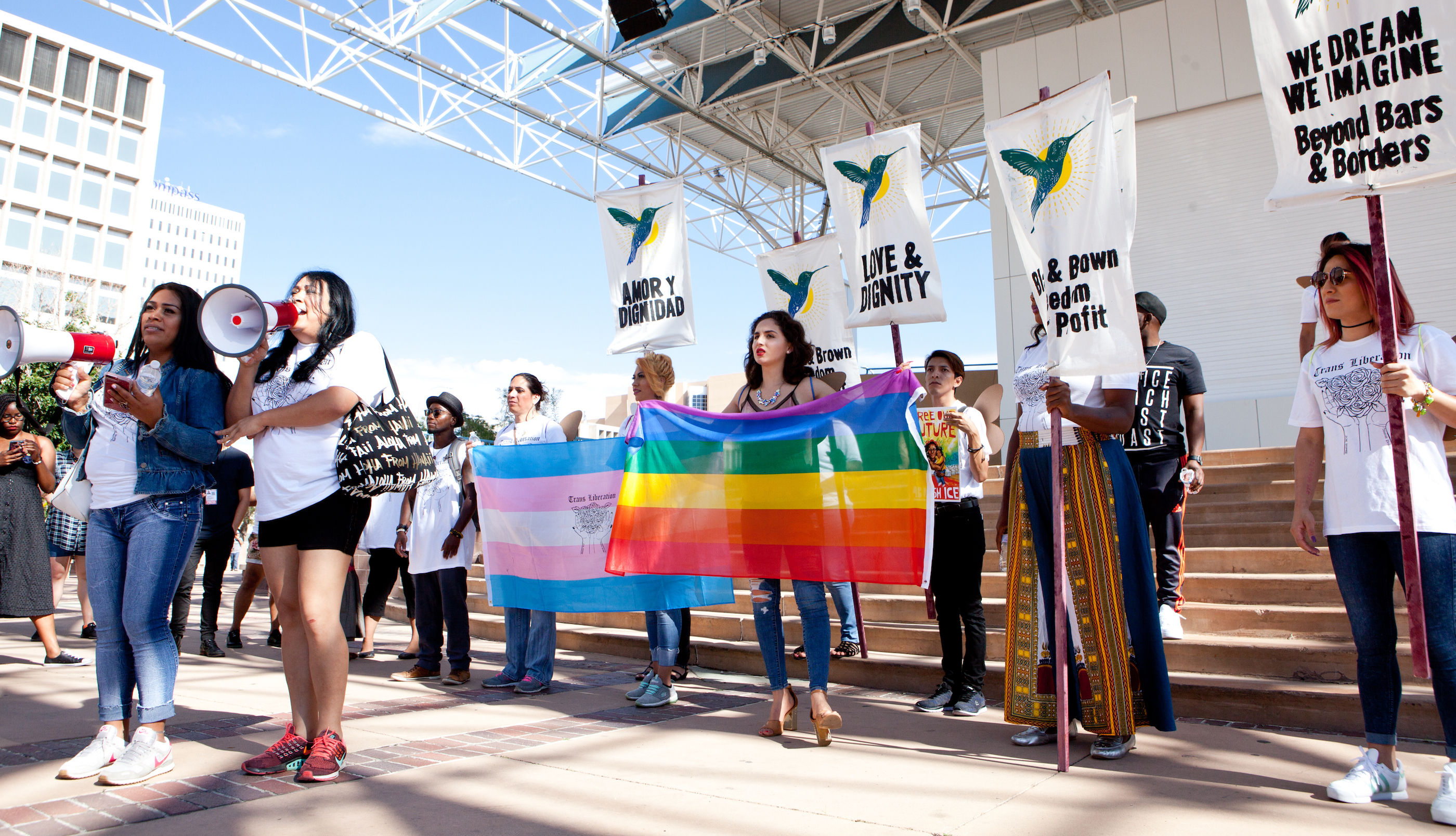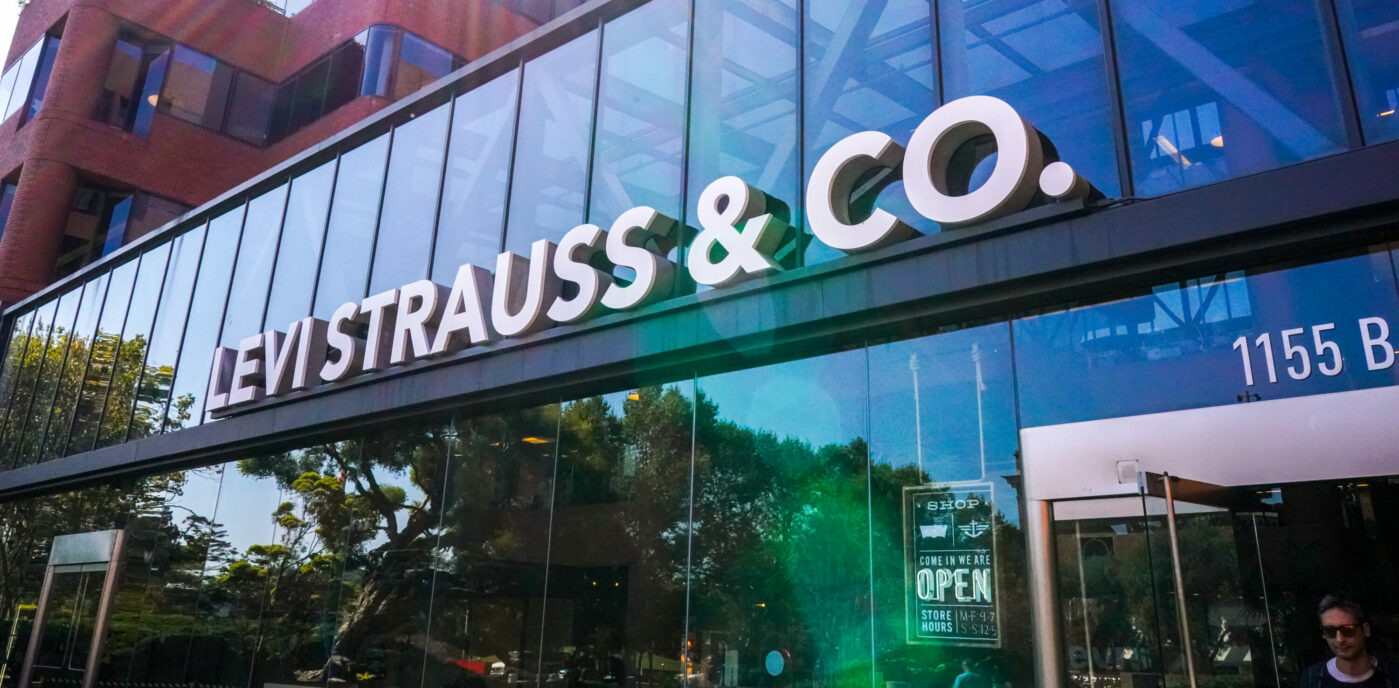In 2010, the Levi Strauss Foundation launched the Pioneers in Justice initiative, a five-year program to support emerging social justice leaders as they fought to uplift their communities and advocated for sorely-needed systemic change in our society. In 2015, we introduced the second cohort of leaders: seven grassroots activists who were working day in and day out to tackle inequality and injustice in our own backyard here in the San Francisco Bay Area. And today, we’re proud to release “Pioneers 2020: Funding the Frontlines of Social Justice,” a report that captures the work of these exceptional leaders and offers a roadmap that other companies and foundations can follow when looking to participate in meaningful social change.
The leaders we chose—Kris Hayashi of the Transgender Law Center, Pastor Michael McBride of Faith in Action’s LIVE FREE Campaign, Vanessa Moses of Causa Justa Just Cause, Zach Norris of the Ella Baker Center for Human Rights, Aparna Shah of Power California, Terry Valen of the Filipino Community Center and Miya Yoshitani of the Asian Pacific Environmental Network—are the guardians of the most vulnerable in our hometown community, with deep ties to groups disproportionately affected by the events of our day. But all have a track record of generating wins and forging models for change that have rippled across California and the U.S.
As we have learned, partnering with grassroots leaders is not top-down but side-by-side work—with the influence flowing both ways. We are proud to have helped these grassroots leaders strengthen their voices and reach new audiences, and to have supported their ability to lead consequential movements. In return, these Pioneers have improved the ability of both the Levi Strauss Foundation and Levi Strauss & Co. as a whole to deliver on our core values of originality, empathy, integrity and courage. They have shown us the importance of local work at the deepest level. They have inspired us to take new risks at a time when power and privilege are being scrutinized and reexamined.
We believe this side-by-side work also reflects the new reality that business and social issues are intertwined—and that companies have an inescapable role to play in our democracy. This has been laid bare by the inequities surfaced in light of the coronavirus pandemic and the stark racial divides highlighted, again, by the killing of George Floyd and its aftermath.
In this era of mean-spirited policies, institutional racism, and government gridlock, we’ve seen many companies take stands on issues that matter, like we did when we opposed the Muslim ban and demanded the reinstatement of Deferred Action for Childhood Arrivals (DACA). In recent weeks, many corporations have started to condemn racism and systemic injustice – issues once considered risky and assiduously avoided by the corporate sector.
But very few companies are pairing public statements and internal actions with sustained investment in social justice movements—and this moment demands that investment. We need more corporate foundations funding leaders at the grassroots level to ensure that these movements succeed. It is not enough to post a message of concern on a social media channel and then return to business as usual. We are called upon to actively invest in communities of color and build their power to organize. This involves seeking out grassroots leaders and organizations that are not on our radar and listening to what they need.
As we’ve learned through Pioneers, this work requires uncomfortable candor, radical empathy, and a kind of flexibility not often practiced in corporate philanthropy. It also, as we’ve seen recently, requires a willingness to look within at our own policies and practices. But what makes this work hard is also what makes it necessary. It’s what we must do to live our values—to move from being grantmakers to changemakers.
The deep-seeded injustices facing our country will not fix themselves, and we all have a role to play in ensuring that they do not endure. We fiercely believe that every institution in society must align toward social justice—no matter how unsettling or uncomfortable, especially at the outset. In this “movement moment,” it is time for all of us, as funders and human beings, to ask ourselves hard questions about who we are willing to stick our necks out for, who we are willing to fund, and who we are willing to be changed by. What we stand for matters—but who we stand alongside matters even more.
Please read our report, Pioneers 2020: Funding the Frontlines of Social Justice, to learn more about this vital work, and how you can get involved.







